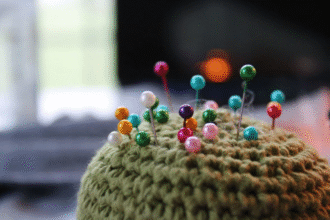Introduction
After the prayer ends many people take a quiet minute to speak with Allah. This quiet time is often called dua after namaz and it is a gentle bridge between ritual and life. In that small space you can thank, ask, forgive, or simply breathe. This article will guide you with simple steps and real tips. I will share short phrases, trusted traditions, and ways to build a steady habit. The tone is friendly and plain. Sentences stay short and clear so anyone can follow. I will also add examples from daily life so the ideas feel real. Read on to learn easy, practical ways to make your post-prayer supplication calm and meaningful.
What is this practice?
Dua after namaz is the personal talk you have with Allah after completing prayer. It is not a ritual step with many rules. It is a quiet pause to bring your needs and thanks to Allah. You can speak Arabic phrases you learned, or you can use your native words. The practice links the formal prayer moves to daily chores and feelings. It turns ritual into relationship. Many call this time the most tender moment in worship. Short, honest words work best for most people. You do not need fancy phrasing. A simple, heartfelt request will do more than long distracted lists. Learn one short phrase, then add your own line.
Why it matters
Dua after namaz matters because it keeps the heart connected after prayer. Prayer centers the mind and the dua gives that calm a voice. In quiet moments your attention is sharper. Sincere words can come more easily. The act trains you to turn to Allah often. Over time, small daily requests build trust and peace. You also grow gratitude and patience by regular supplication. Many believers report feeling light after asking for help or saying thanks. This habit prevents prayer from being only movement. It changes ritual into a steady relationship. The result is inner calm that helps through busy days and hard nights.
When to make supplication
Most people begin dua after namaz right after the final salam. That moment is calm and focused. Some find it best while still sitting. Others offer short words while leaving the mosque. Some also make quick dua while in sujood or right after rising. The main point is presence. If you feel rushed, pause a few breaths before you speak. A one-minute honest prayer is better than a long distracted list. Try to set a small rule, like one short dua after each prayer. With time you will know the moments that work best for you and your rhythm.
How to make your supplication sincere
Sincerity beats length when you make dua after namaz. Start by calming your breath and focusing your mind. Praise Allah briefly and send blessings on the Prophet. Then ask clearly and slowly. Use short sentences that you can feel and repeat. Include others in your prayers, not only yourself. Be humble and honest about your needs. If thoughts wander, bring your focus back gently. End with thanks and ‘Ameen.’ Over weeks, this simple routine helps the heart speak truthfully. Practice makes the words feel natural, not forced.
Common short duas to learn
Short, repeated phrases are easy to remember and calming. Try these quick supplications after prayer. Say “SubhanAllah” to praise God’s perfection. Say “Alhamdulillah” to give thanks. Say “Allahu Akbar” to remember His greatness. For forgiveness recite “Astaghfirullah.” For guidance use “Allahumma ihdini” which means “O Allah, guide me.” To ask for Paradise you can say “Allahumma inni as’aluka al-jannah.” Repeat a favorite phrase three times if that helps focus. Practice one or two short lines each day. Over time your memory will grow and these phrases will become soft companions to your daily worship.
Duas taught by the Prophet
The Prophet ﷺ shared many short duas to say after prayer. These authentic phrases include praises, requests for protection, and calls for guidance. Many Muslims recite tasbih (SubhanAllah), tahmid (Alhamdulillah), and takbir (Allahu Akbar) after prayer. Hadith collections also recommend specific short supplications for forgiveness and safety. Learning one of these traditions helps you connect to the Prophet’s practice. Start with one phrase and learn its meaning. Saying a phrase with understanding deepens the effect. Add one of these taught phrases to your routine and use it as a steady anchor for your private words.
Recommended adhkar and dhikr
Adhkar and dhikr are short remembrances that calm the heart after prayer. Examples include Ayat al-Kursi and the last surahs of the Qur’an for protection. Many recite morning and evening adhkar as part of daily worship. Simple counts like repeating “SubhanAllah” thirty-three times are common and helpful. These practices support your personal dua and deepen presence. Use a small note or a trusted book while you learn the phrases. Over time the words settle into your heart and help you stay mindful through the day. Adhkar and dhikr pair well with a short personal supplication after each prayer.
Seeking forgiveness and mercy
Asking forgiveness is a humble and healing use of the minutes after prayer. Say “Astaghfirullah” and then add your own lines for mistakes you remember. Ask Allah to forgive and to guide your steps. Include family and friends in your request. Forgiveness frees the heart and clears worry. It also prepares you to act better in the future. Make short, honest confessions and then plan one small change to correct the fault. Regularly turning to Allah for mercy teaches you to accept correction with hope. The habit of asking forgiveness keeps the soul soft and open.
Guidance for decisions and hard choices
When choices feel heavy, dua after namaz can bring clarity. Ask for guidance, patience, and ease. Say a short phrase asking Allah to show the right way. Write down the options before you pray and then read them quietly. Notice any sense of calm or an idea that feels right. Many people find signposts in peace or ease after prayer. Combine dua with practical steps and friendly advice. Trust builds slowly, so keep asking and acting wisely. Over time your judgment grows steadier and you will handle choices with more calm and confidence.
Personal examples and practical tips
I will share one simple habit that worked for me. Each night I write three short needs on paper. After prayer I read them and speak a short dua for each line. Then I pause and breathe. Often a small idea or help comes later in the day. One time a quick contact solved a worry I had written down. Small successes like that kept the habit alive. My tip: begin with one short dua and use it daily for a week. Keep a tiny notebook of answered prayers. This practice builds trust and makes the quiet minutes after prayer feel steady and warm.
Mistakes to avoid
There are common traps to watch for when you pray after namaz. People sometimes rush and lose focus. Others repeat long lists without attention. Avoid showing off or seeking praise for your prayers. Do not treat dua like a shopping list without heart. If you cannot focus, sit a bit longer and breathe. Keep your intention private and sincere. Short, clear requests usually hold more meaning than long, distracted ones. Pair your dua with good deeds. Small, steady changes in action show that your words are true. Be gentle with yourself as you build this habit.
FAQ 1 — How many times should I repeat?
There is no fixed number you must say after prayer. People use different counts by choice and comfort. Some repeat short phrases three times. Others speak until they feel finished. The quality of attention matters far more than the count. If repetition helps you focus, pick a small set of words and repeat them. If personal speech helps, use your native language and be direct. A practical tip is to choose one focused dua a day. Repeat it for a week and observe the effect. Consistency and sincerity beat long lists said without feeling.
FAQ 2 — Can I pray in my own language?
Yes, you can make supplication in any language you know. Allah understands all hearts and all languages. The Prophet ﷺ often used Arabic but he also made simple personal prayers. Using your native tongue helps you be clear and sincere. It is still beautiful to learn short Arabic phrases for tradition and meaning. Do not let unfamiliar words stop you from speaking honestly. A good blend is to use some short Arabic dua alongside your own words. That way you keep heritage and personal connection both alive.
FAQ 3 — Must it be long to be accepted?
No, length is not the measure of acceptance. Short, honest words often carry the deepest meaning. The Prophet used both short and long supplications. The key is attention and truth in the heart. If your mind drifts, short clear requests will help you focus. If you prefer longer prayers sometimes, that is fine too. Try balancing both styles. One short set of words plus one heartfelt line is a useful mix. Practice often and notice how your focus improves. Presence matters far more than performance.
FAQ 4 — Is it okay to ask for worldly needs?
Yes, asking for food, work, health, and family needs is allowed. Allah cares for our daily life as well as our souls. The Prophet asked for both worldly and spiritual needs. Balance your requests by adding prayers for guidance and patience. Trust that Allah may answer in ways you do not expect. Sometimes the answer is a new skill or a softer heart. Include thanks in your dua and accept outcomes with patience. Pair supplication with practical action, and keep hope steady as you work toward your goals.
FAQ 5 — Can I pray for others?
Absolutely. Praying for family, friends, and the community is highly recommended. The Prophet often asked for mercy and guidance for others. You can name the sick, the poor, and those in trouble. Keep a weekly list of names to remember them. When you pray for others your heart softens and your compassion grows. Saying a small, honest dua for another person is powerful. This habit builds a caring community of supplication and connects your needs with the needs of those around you.
FAQ 6 — What if I forget my duas?
Do not worry if you forget the words sometimes. Dua coming from the heart matters most. If you forget, make a short honest prayer when you remember. A tiny daily habit works well: one brief sentence each prayer. Use a note or phone reminder to list your steady requests. If distraction is frequent, try a short breathing exercise before prayer. Be patient and consistent. Small daily steps lead to lasting change. Your practice will improve gently if you keep trying with kindness and patience.
Conclusion
Dua after namaz is a simple, powerful way to keep close to Allah every day. It turns ritual into conversation and keeps your heart soft. Begin with one short phrase and add your own words. Learn one or two taught phrases and mix them with personal speech. Keep a small notebook for answered prayers and note the change. Pair supplication with kind action and steady patience. Remember that quality of attention matters more than quantity of words. Try one small change today and keep it for a week. Let the habit grow slowly, and enjoy the calm it brings to daily life.









